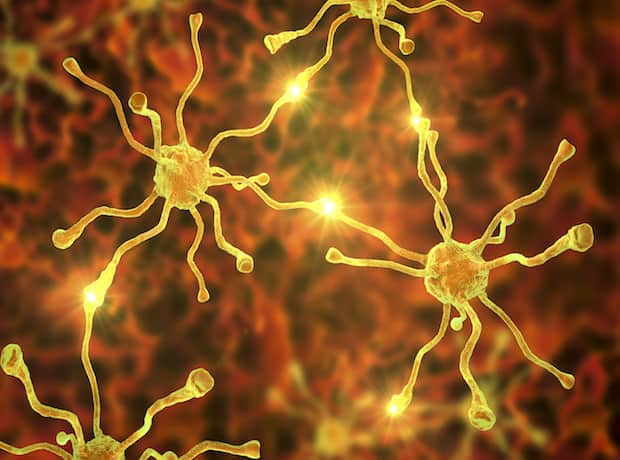Diseases such as Alzheimer’s and Parkinson’s affect more than one million people in the UK.
Researchers at King’s College London (KCL) and other collaborators have discovered that senescent cells may reveal early symptoms of neurodegenerative diseases such as Alzheimer’s disease and amyotrophic lateral sclerosis.
Published in Senescent cellsThis discovery could provide a broader picture of the drug target space and lead to improved treatments for these types of diseases.
Neurodegenerative diseases such as multiple sclerosis, which affects more than one million people in the UK, and Parkinson’s disease occur when cells in the central nervous system stop functioning or die.
Using fluorescence to measure the viscosity of neuronal cytoplasm (the fluid surrounded by a neuron’s cell membrane) in mice, the researchers found that the viscosity of the cytoplasm of neurons (the cell bodies) increased as the mice aged, but not in the axons, the tail-like structures that transmit electrical and chemical signals to other cells.
The researchers suggested that mitochondria are trapped in the viscous cell body and cannot be transported from the cell body to the axon, affecting cell health.
Normally, during ageing and neurodegenerative diseases, mitochondrial transport, in which the parts of the cell responsible for energy production are transported from the centrosome of the cell body to the axon, tends to decrease and is considered a litmus test for further brain degeneration.
By comparing cytoplasmic viscosity with that of healthy patients of the same age, the team suggests that changes in viscosity could be used as a warning sign of neurodegenerative disease.
Dr Alessio Vagnoni, lead author of the study and lecturer in cellular neuroscience at KCL, commented: “By measuring viscosity for the first time in a model of neuronal ageing, we may be able to map specific age-dependent neurodegenerative diseases onto cytoplasmic viscosity, expanding the list of biomarkers for different diseases.”
The researchers now plan to study how environmental factors, including further age-related diseases, affect the cytoplasm of neurons and how this can lead to neurodegeneration.







